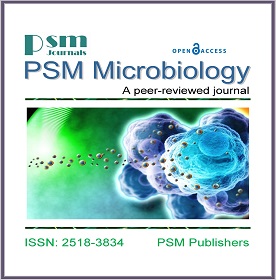Antibiotic Resistance Profile and Detection of TEM Genes in E. coli Strains Isolated from Some Food Samples
Keywords:
Antibiotic resistance Multidrug resistance Disc diffusion technique Plasmids TEM genes.Abstract
The study aimed to determine the antibiotic resistance profile using disc diffusion test and to assess the presence of TEM genes from twelve E.coli strains isolated from some food samples (smoked fish, ‘zoborodo’ and grilled meat, ‘suya’). Multidrug resistance was found in approximately 67% of the total E. coli strains with four patterns; AMP, KF, CPD, SXT, TE; AMP, KF, CPD, CRO, TE; AMP, KF, CPD, SXT, TE, AMC and AMP, KF, CPD, CRO, SXT, TE, AMC. All strains were susceptible to amikacin and ciprofloxacin. MAR index analysis reveals that eleven out of twelve E. coli strains (91.7%) had high MAR index greater than 0.2. The E. coli strains were analyzed by PCR amplification for the presence of blaTEM, using primers and conditions described in the literature. They are typically encoded by plasmids that can be exchanged readily between bacterial species. Eight E. coli strains (67%) were found to possess the TEM gene. Seven of the eight (87.5%) were resistant to cefpodoxime and /or ceftriaxone in the antibiotic sensitivity disc diffusion test (DDT) of the strains. The remaining one was found to be susceptible to all the antibiotics studied, yet harbouring a TEM gene. This could be due to inoculum effect and substrate specificity which may render the enzyme in an un-induced state at the time of the DDT. This creates a major challenge in laboratory routine susceptibility tests. Three of the E.coli strains (Ze2, Sye2& Sye6) were all resistant to cefpodoxime, yet do not harbor TEM genes. Other beta-lactamase genes that were not included in this study may have been responsible for the resistance. E. coli strain SFe15, was not resistant to any of the 3rd generation cephalosporins and does not harbor TEM genes. This result minimally shows that the environment is markedly burdened and therefore resistance to commonly used antibiotics is inevitable.
Downloads
Downloads
Published
How to Cite
Issue
Section
License
Copyright (c) 2022 PSM

This work is licensed under a Creative Commons Attribution-NonCommercial 4.0 International License.




